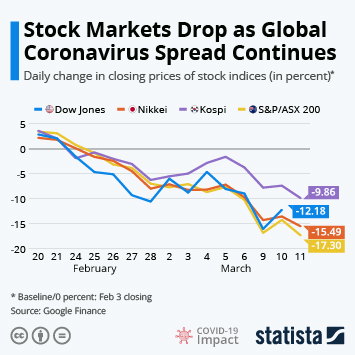After a month of living in lockdown, the Hunter community can’t help but think ahead to what the new normal might look like. Here are their predictions:
“Being more cautious with personal hygiene.” Jessica Lowell of the nursing program at Hunter takes the medical repercussions of this pandemic very seriously. She washes her hands frequently and sanitizes her groceries and cellphone. “I don’t think that new habit will disappear. I think the use of hand sanitizer, gloves, and mask will stay at necessity in the household,” she said.
“Humans will be more prepared for future pandemics.” Lowell says this will also better prepare people for such emergencies in the future. When coronavirus broke news back in December, the spread of it was not predicted globally. President Donald Trump took nearly 70 days to react to the first formal notification about the outbreak of coronavirus in China.
“We will have a newfound respect for doctors, caregivers, essential workers and small business owners.” Anna Grizolde, who works in Hunter’s communication office, has an older sister who works as a nurse and she gets a second-hand experience of what it’s like working in that environment. “You never realize how much they do until you’re not doing anything at all,” Grizolde said. In efforts of support to this newfound respect, many policymakers are championing hazard pay, according to Brookings Institute. On April 7, Senate Democrats introduced a proposal calling for the next stimulus bill to include a COVID-19 Heroes Fund.
“The stock market might crash again.” “Businesses will be extremely different in the market after the realization of how

fragile our economy truly is,” said Jason Ritetman. A junior who studies economics, Riteman said that similar to the Great Depression, America has a chance of repeating history. “The way people spend money in the stocks and shares won’t be reckless and they won’t gamble without a sense of security,” said Riteman. Stock markets around the world are declining, according to Statistica. Many people are withdrawing their money in fear of the market crashing like it did in 1929, reports the World Economic Forum. Coronavirus has also intervened with the trade between countries when it comes to importing and exporting goods, reported the United Nations Conference on Trade and Development. This may sever the relationships built over the years.
“Unemployment will reach an all-time high.” “With the [unemployment] rate going so high, people will eventually reconsider their current job and switch to more online-based jobs/technology-based jobs,” sophomore John Stend said. Roughly 1.2 million New Yorkers have filed for unemployment ever since the coronavirus. Many businesses are being shut down unless considered essential. Restaurants are only allowed take-out and are projected to lose 7.4 million jobs, consulting firm Challenger, Gray & Christmas Inc. estimates.
“Locally-owned businesses will take more of a hit.” “The economy is gonna have a hard time bringing back up profits and small businesses will have to spike up prices in order to break even,” says economics major Alex Fredas. There has been a possible solution to prevent this prediction from happening. Congress has yet to pass a rescue package that could include about $350 billion in loans for small businesses that would convert into grants if they retain most of their workforce. Those companies can apply for low-interest disaster loans from the Small Business Administration. The catch: it can take as long as 21 days to process an application. Once approved, it might take another week to go through, the agency says. The wait time for this to be processed can cause the business to fail midway.
“Remote work will become the default.” “On a larger scale, I think the working from home movement will have a lasting effect on American businesses,” said Coralie Carlson. Carlson, a former professor in the journalism department, already does some work from home as a freelancer for the Associated Press. “It’s proving that many jobs can be done effectively and efficiently from home, without wasting time and money and fossil fuels on commuting,” Carlson said. According to the Flock Remote Work Research Survey done in February 2020, 91% of workers agreed that working from home could help prevent people from getting sick and 89% were willing to work from home to help prevent the spread of illness.

